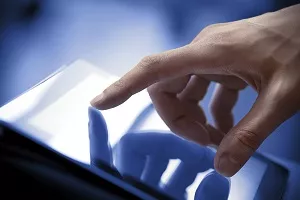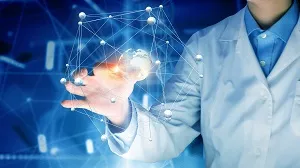Perspectives on Pharma: The Role of Smart Tech in Regulated Laboratories

Raise your hand if you have no smart tech at home or in your car. I thought so. Not many hands will go up. We all have some sort of smart tech in our homes to manage our daily lives – from personal digital assistants utilizing voice commands – to cloud heating controls to smart ovens. Recently, however, we are seeing a shift from smart tech that assists human activity (i.e., shopping, reminders, etc.) to smart tech that mitigates human activity, such as driverless cars. All in all, smart tech may reduce or even potentially remove the risk of human error.
The rise of smart tech
While driverless cars have not quite hit the mainstream market yet, they are fast approaching, and the advantages of them are clear. When did your car last warn you about sub-optimal tire pressure? When did you last use a pre-programmed setting on your oven or microwave to cook a meal? Smart technology that works to reduce the small, unintended errors we humans make, with the overall aim of improving the quality of daily life, is everywhere – even in the lab.

From the home to the lab
What does smart tech look like in an analytical lab today? We are already seeing a rise in automated sample handling, which has been accelerated because of COVID-19, with the need to maintain critical business operations while keeping employees safe through social distancing. This has also included remote monitoring of a lab like remote monitoring of your home. Taking this a step forward, some labs have implemented work practices where analysts set up and prepare the liquid chromatography (LC) systems remotely and come onsite only to prepare samples and start the sample analysis.
So, what do you think the equivalent of autopilots in cars looks like in a lab? In my mind, it looks like LC systems that can start up automatically and minimize human error. “Smart” LC systems would flag potential issues or errors before a sample analysis starts, which could result in reducing the number of failed batches and increasing lab productivity.
Preparing for the unknown
I believe the “lab of the future” is an exciting time, and labs that are primed and ready to take advantage of these future technological advances will get ahead of their competitors. You may be wondering just how will a lab get there? As with many technologies, cloud connectivity is imperative to their functionality (think back to driverless cars). For Waters, this connected platform works alongside the industry’s gold standard software, Empower™ Chromatography Data System (CDS) Software, enabling all (vendor-agnostic) instruments on the Empower CDS Network to be viewable from anywhere in the world through a secure connection.
Taking this one logical step further, in combination with “smart” LC systems, cloud connectivity could allow preventative maintenance to be scheduled at the most convenient time, helping to keep the system running smoothly. In turn, this could open the door for additional analytics and machine learning to improve uptime and increase overall productivity.

The future is Smart
Unfortunately, no one can predict the future; technology is rapidly evolving and it’s exciting to be part of that journey. Who knows what the lab of the future will look like 20 years from now? Whatever the future of smart technology looks like, I’m confident that the vision of this technology to streamline, increase productivity, and improve quality can only bring benefits to regulated labs.
To learn more about smart tech in regulated labs, watch our on-demand roundtable, Perspectives on Pharma Roundtable: The role of smart technology in mitigating human error and supporting compliance in QA/QC
Additional Resources:
Blog: Helping Labs Embrace New Era of Efficiency
Blog: Bring Efficiency Back to Your Lab: How Aging Technology Hinders Ideal Performance
Case Study: CDMO Streamlines Instrument Upgrade While Minimizing Laboratory Downtime
Popular Topics
ACQUITY QDa (16) bioanalysis (11) biologics (14) biopharma (26) biopharmaceutical (36) biosimilars (11) biotherapeutics (16) case study (16) chromatography (14) data integrity (21) food analysis (12) HPLC (15) LC-MS (21) liquid chromatography (LC) (19) mass detection (15) mass spectrometry (MS) (54) method development (13) STEM (12)


